Awardee Spotlight: Ash Stephens
Ash Stephens is a Ph.D. student in the Department of Criminology, Law & Justice & a former TA in the department. On March 3, 2016, he received the Grace Holt Award from our department based on his contributions to volunteer organizations that have held true to “analysis, education, and organizing around tightly interconnected issues of racial justice and gender justice by focusing on issues that disproportionately affect African American women and gender non-conforming people, as well as African American people involved with the criminal legal system,” said Ash.
Image of Ash Stephens Heading link
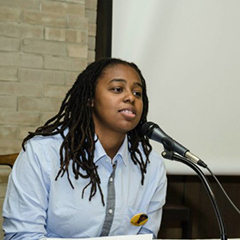
“I’m involved in work around racial and gender justice, work that centers the lives of all Black people, movements to end criminalization and the impacts of and structures of prisons, jails, and incarceration, as well as movements to end gender-based violence for folks of all genders.”
| PhD Candidate, Criminology, Law, & Justice
Interview with Ash Stephens Heading link
Where are you from? How did this inform the way you were raised?
Ash Stephens: I was born in Warner Robins, GA, I lived in the Atlanta, Georgia area most of my life, but I spent about 6-7 years in Texas as a kid too.
I think growing up Black in the South influenced a lot of how I was raised. I grew up learning about Black people’s contributions to the American South, in particular. I grew up with easy access to parks and outside sports and activities that allowed me to explore a range of possibilities. I think this also gave me a different kind of independence. Growing up close in distance (for most of my life) and in connection to most of my family also informed how I bond with people, I think.
Why did you decide to come to UIC?
Stephens: For undergrad, I really wanted to move out of Georgia, but financially it just wasn’t available for me. After going to undergrad at Georgia State University (GSU), I really wasn’t sure what I wanted to do. I did know that I needed at least a master’s degree to do something though. GSU is in the heart of Atlanta, Georgia and I really grew to love the feel of a university campus in a major city. When I was researching schools, this was really important to me. As well as, who was teaching at the university and the organizing and activism happening in particular cities at the time, as well as what types of friendships and support networks I felt I could access. My dad took me on a visit to Chicago and minutes after I visited my department, I met the Criminology, Law and Justice (CLJ) graduate program coordinator Sharon Casillas who is amazing! She introduced me to LaTosha Traylor (who’s since gotten her PhD from the CLJ department, and I really felt like I could make UIC and Chicago my home.
Part Two of Interview Heading link
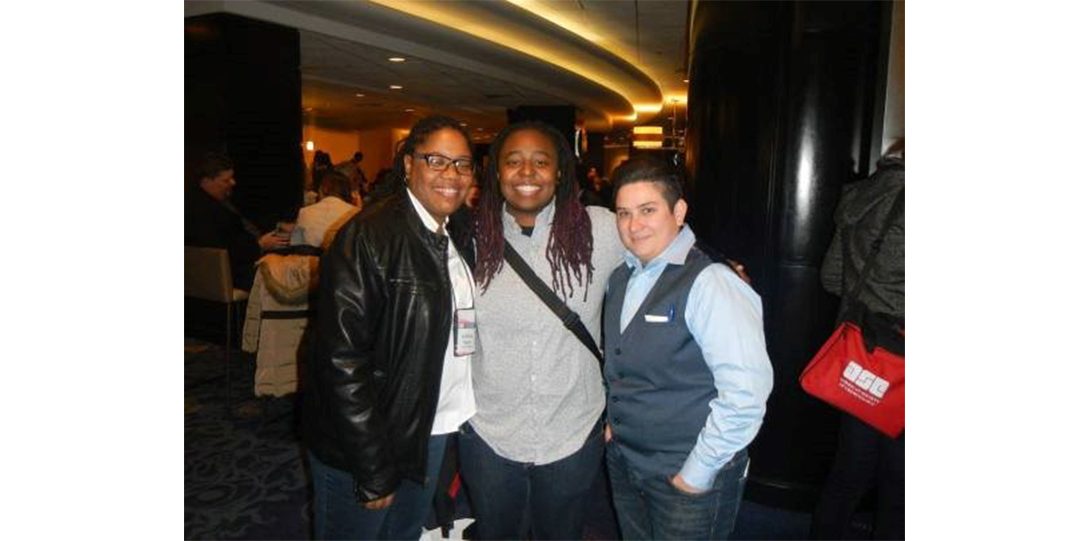
Why did you choose the field you’re in?
Stephens: I’ve always loved reading. I started to read more critical work mid-way into undergrad. I really started to enjoy learning about how the “system” operates and the different critiques folks were writing about these systems and organizations, which call themselves the criminal justice system. I was also taking African American Studies courses at the time and I really just wanted to read more. I chose criminology because this was where I found my entry point into critical interdisciplinary work that also incorporated other disciplines that interested me.
Why did you decide to get a PhD?
Stephens: I was inspired. Folks that have taught me how to read inspired me. Thinkers, educators, researchers, activists, organizers, and so many other folks inspired me. The thought that I could become one of these people through reading and teaching is what really propelled me to get a PhD.
Who are some of your mentors and why?
Stephens: I like to think I have a lot of mentors. I do want to personally name 3 people though- Dr. Beth Richie, Mariame Kaba and Dr. LaTosha Traylor.
Meeting Dr. LaTosha Traylor on my very first visit to UIC truly helped me feel grounded and allowed me to not feel so small in such a new place. She has always supported me as a student and as a person, and as a new-scholar her mentorship has been invaluable.
Mariame Kaba is a great organizer, activist, and thinker who I truly admire. In the past couple of years, she has really challenged me and pushed me to continue to think and strategize and bring my best self to the table.
I think another critical moment for me was taking a master’s course with Dr. Beth Richie. Being able to discuss her scholarship and other important works really sparked ideas about things I wanted to read about and study. The way she approaches teaching and scholarship and academic integrity are attributes that I truly hope to model one day.
Part Three of Interview Heading link
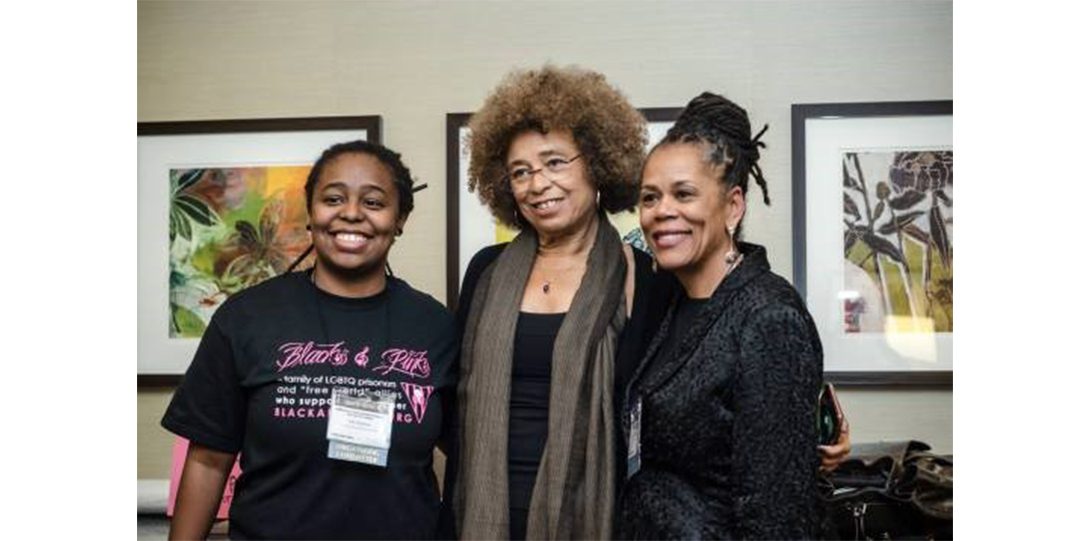
All three of them I consider mentors because the ways that they approach their work and their educating are aspirations of mine. Also, they have all opened up pieces in me that I didn’t know existed, like organizing and activism, and I am forever grateful.
Why did you apply for the Grace Holt Award?
Stephens: I applied for the award because it fit my combination of interests- scholarship, activism, and commitments to advancing racial justice.
Part Four of Interview Heading link
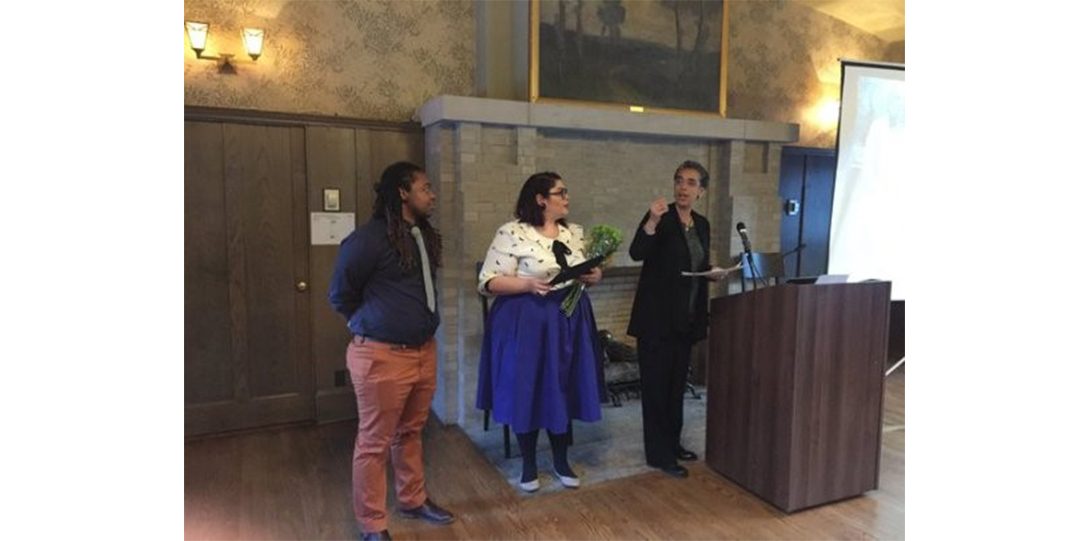
What does activism mean to you?
Stephens: To me, activism is doing work with people who have/are developing good politics and developing analysis around issues that will positively impact the world and do not leave out folks most marginalized, but instead, highlights the work of folks most marginalized and makes their work and impact and lived experiences most visible.
What are some movements that you’re involved in?
Stephens: I’m involved in work around racial and gender justice, work that centers the lives of all Black people, movements to end criminalization and the impacts of and structures of prisons, jails, and incarceration, as well as movements to end gender-based violence for folks of all genders.
Part Five of Interview Heading link
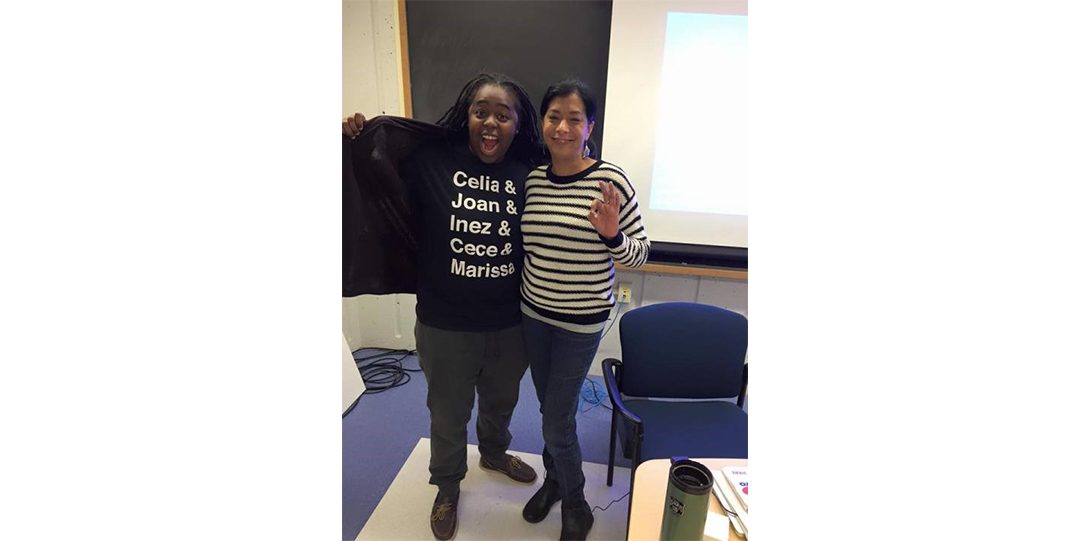
Would you encourage undergrads to go after a PhD?
Stephens: I would encourage people to think and read and study about things that interest them and that would positively impact the world.
What are your hobbies?
Stephens: I love sports and comics.
What is the best thing about Chicago?
Stephens: Community. Having found a community and/or communities of folks that I feel connected to and we all support and challenge each other has been the best thing about Chicago.
How would you describe the Department of African American Studies?
Stephens: The AfAm Department feels very much like a myriad of interests, personalities, and expertise. To me, this is what makes it best. I think the AfAm Department holds a lot of knowledge because of the folks in the Department and this allows students to find support in a variety of interests.
I also think that over the course of my time at UIC, the AfAm Department has really started to respond to students’ interests and concerns through the events and courses offered. It’s exciting.
If you weren’t getting a PhD in your field, what do you think you’d be doing?
Stephens: I would definitely be reading and thinking and still be involved in activism. I would also like to run a feminist blog- to write about sports, sneaker culture, and news that “mainstream” media doesn’t talk about, activism, racial and gender justice issues. I would also be trying to own either a sneaker store or a small bakery, and have a sort of intergenerational, queer business with LGBTQ young people and seniors.